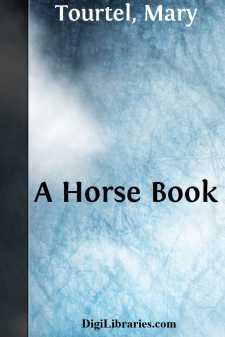Categories
- Antiques & Collectibles 13
- Architecture 36
- Art 48
- Bibles 22
- Biography & Autobiography 813
- Body, Mind & Spirit 142
- Business & Economics 28
- Children's Books 15
- Children's Fiction 12
- Computers 4
- Cooking 94
- Crafts & Hobbies 4
- Drama 346
- Education 46
- Family & Relationships 57
- Fiction 11829
- Games 19
- Gardening 17
- Health & Fitness 34
- History 1377
- House & Home 1
- Humor 147
- Juvenile Fiction 1873
- Juvenile Nonfiction 202
- Language Arts & Disciplines 88
- Law 16
- Literary Collections 686
- Literary Criticism 179
- Mathematics 13
- Medical 41
- Music 40
- Nature 179
- Non-Classifiable 1768
- Performing Arts 7
- Periodicals 1453
- Philosophy 64
- Photography 2
- Poetry 896
- Political Science 203
- Psychology 42
- Reference 154
- Religion 513
- Science 126
- Self-Help 84
- Social Science 81
- Sports & Recreation 34
- Study Aids 3
- Technology & Engineering 59
- Transportation 23
- Travel 463
- True Crime 29
A Horse Book
by: Mary Tourtel
Categories:
Description:
Excerpt
AT PLAY.
Three little foals you see at play.
They romp and sport all through the day,
But sometimes they are most sedate
And try to ape their mothers’ gait.
They wheel and race and leap and prance,
And sometimes they are said to dance:
But always they will stand and stare
At anyone who passes there.
[4]
[5]
[6]
The horse, like us, must go to school
To learn by precept and by rule.
Like us, he does not love the work,
Like us, he’s not allowed to shirk.
This little instrument you see
Strapped on his back, shaped like a V,
Is a “Dumb Jockey” meant to train
The horse to bear the bit and rein.
[7]
[8]
[9]
[10]
[11]
CLEVERNESS.
Billy, the circus pony, can
Distinguish letters like a man:
He’ll hold up for you in the ring
His D for Dunce and K for King.
With P for Pony he will show
That he his family name doth know;
And he will find the C for clown
And at his feet will put it down.
[12]
[13]
[14]
Although this horse is doing all he can to drag his heavy load up the hill, the lazy boy who is walking beside him, with one hand in his pocket, beats him cruelly with the stick which he carries. The boy is too silly or too careless to see how willingly the horse is working.
[15]
[16]
[17]
[18]
[19]
WILFULNESS.
A horse’s great red-letter days
Are days of hunting, when his ways
Are often very wilful. Here
See this John Gilpin in great fear.
He came out just to see the Meet,
But the horse thought he would compete
With horses, hounds and fox for place,
And led the man this madcap race.
[20]
[21]
[22]
On the prairies in the Far West of America a man lost his way. He had no water to drink, although both he and his horse were parched with thirst. Not knowing where to find water, he cast the reins on the neck of his horse. By means of that wonderful intelligence which some people wrongly call instinct, the horse found his way to a spring, although it was many miles distant. Thus both man and horse were able to quench their thirst, and in this way their lives were saved.
[23]
[24]
[25]
[26]
[27]
KICKING.
These two are very much dismayed
To see the fuss their horse has made
Because this dog in playful mood
Barked in a manner rather rude.
It is a thing some horses do
Until the driver makes them rue
Their fits of temper. Then they say
That kicking doesn’t seem to pay.
[28]
[29]
[30]
These big carthorses and these little children are great friends. Although the horses are so big, they are very gentle, and allow the carter’s children to lead them home in the evening, or to ride on their backs.
[31]
[32]
[33]
[34]
[35]
BITING.
Peggy is the children’s pride,
And she allows them all to ride.
She comes to them whene’er they call,
And loves to have them in her stall.
With others she has wilful ways.
She will be cross with John for days,
Will kick and squeal, will show much spite,
And very often try to bite.
[36]
[37]
[38]
These three horses are ploughing an upland field. They are thoroughly enjoying themselves, for they are so strong that their work is a pleasure to them. The ploughman is guiding the plough, so as to keep the furrows straight. The rooks are soaring round in search of grubs found in the earth which is turned up by the plough.
...

